The report provides an important picture of the performance of the local government apparatus in the second year of the 2021-2026 term, and shows the changing views of the people on the effectiveness of local anti-corruption work in the context of people's expectations for effective and efficient governance that meets the increasing needs of the people.
Vietnam’s efforts in 2022 to overcome the socio -economic impacts of two years of the pandemic have helped boost people’s confidence in their household and national economic conditions over the past year. Notably, 66.1% of respondents rated the national economy as “good” in 2022 – up 19.4% from a year earlier. In the same question, the proportion of people rating the country’s economic conditions as “poor” decreased by 13.7% compared to 19.8% in 2021 to 6.1% in 2022. Similarly, at the household level, the proportion of people saying their household’s economic conditions were “poor” decreased from 15.3% in 2021 to 11.4% in 2022.
Despite improved economic conditions, the impact of two years of the pandemic is still felt. Although 56% of respondents said their household economic conditions were better in 2022, up from 52% in 2021, this was still the lowest level since 2012. Similarly, those who said their household economic conditions were worse rose to the highest level since 2012, excluding 2021. These figures suggest that many people are still worried about the impact of the pandemic, with ethnic minorities and women being hit hardest due to higher rates of poverty and unstable employment among these two groups.
The shift to the post-pandemic era is also reflected in people's opinions when asked about the most important issues that the State needs to focus on solving in 2022. The percentage of people choosing health care and health insurance as the most important issue dropped sharply from 23.84% according to the 2021 PAPI survey to 6.38% according to the 2022 PAPI survey. Poverty returned to the top position with 22.13% of respondents choosing this issue in 2022. Poverty has also been the issue that has continuously topped the list of issues that people are concerned about since 2015, except in 2021 when Vietnam was strongly affected by the COVID-19 pandemic.
With the highest number of interviews ever, reaching 16,117 randomly selected respondents from all 63 provinces and cities in Vietnam, the 2022 PAPI Report provides invaluable data and information on the performance of governments at all levels in the first two years of the 2021-2026 term and contributes to the formulation of important policies and laws in 2023.
At the PAPI 2022 Report Announcement Conference, Dr. Nguyen Huu Dung, Vice Chairman of the Central Committee of the Vietnam Fatherland Front, said: “Over the past 14 years, the PAPI Research Program has had a positive impact, changing the awareness and actions of provincial authorities, practically contributing to promoting State administrative reform - one of the key contents of the 3 strategic breakthroughs in socio-economic development that the Party and State of Vietnam have been striving to implement. Therefore, researching and analyzing the people's assessment of the effectiveness of governance and public administration at the provincial level provides important indicators, helping policy makers promptly adjust and improve policies and innovate operating methods to suit practical requirements.”
Speaking at the opening of the conference, Australian Ambassador to Vietnam, Mr. Andrew Goledzinowski, shared: “I am pleased to see that the Vietnamese Government is monitoring the results of PAPI to adjust policies and improve the quality of public services, especially at the provincial level. It is important that PAPI reflects the views and voices of a wide range of people, including women and men, as well as people with disabilities. Listening to citizens in this way is essential to improving public services. Australia has been supporting this important governance initiative for the past seven years because we see the value of this research for Vietnam.”
As the Government pushes anti-corruption as a key task in this term, the 2022 PAPI survey results show that public attitudes towards this issue are changing. The proportion of respondents who believe that corruption is a serious issue that needs to be addressed by the State increased by 4.8% in 2022, compared to 2021. This trend is consistent with the findings of the "Control of Corruption in the Public Sector" dimension, with the number of people reporting that the effectiveness of local government in controlling corruption decreased for the first time since 2016. The reason for this decrease was due to an increase in the proportion of people who believe that they need to rely on close relationships with people in positions of power to get a job in a state agency and an increase in the proportion of people who have to "pay off" when registering land use rights.
Transparency in local decision-making helps to provide early warning of possible wrongdoing, thus playing an important role in reducing corruption. However, the results of the 2022 PAPI survey show that there have not been many positive changes in this important aspect of public governance. The main reason is that people still reflect on the inaccuracy in the list of poor households by local authorities so that truly poor households can access state support. However, people acknowledge improvements in the disclosure of information on commune-level budget revenues and expenditures in 2022.
To contribute to the 2023 law-making and enforcement program, the 2022 PAPI Report also analyzes the results of citizen surveys on a number of issues to provide evidence for discussing amendments to the 2013 Land Law and preparing for the implementation of the Law on Grassroots Democracy in 2022.
Ms. Ramla Khalidi, Resident Representative of the United Nations Development Programme in Vietnam, said: “The PAPI research program aims to reflect people's assessments of the implementation of policies and development programs of the State, thereby contributing to improving and enhancing the responsiveness, openness, transparency and accountability of governments at all levels. The PAPI Report 2022 provides an important source of empirical data for governments at all levels from central to local levels to monitor their performance in state management, public administration and public service delivery.”
The 2013 Land Law includes provisions related to land transactions, confiscation, and compensation. The PAPI index examines people’s perceptions and experiences of the effectiveness of local land governance, through which it analyzes a number of indicators assessing the equality in the application of some provisions of the law in practice. An important finding is that the rate of households whose agricultural land was recovered increased to 4.1% in 2022, higher than the previous year. In hamlets/villages/communes where at least 30% of the population is engaged in agriculture, the rate of respondents reporting that their households had their agricultural land recovered increased from 5.4% in 2021 to 6.5% in 2022. This shows that agricultural land recovery in rural areas remains a prominent issue that needs to be addressed through stricter regulations on transparency and equal access to land information in the revised Land Law.
Local people believe that compensation for land acquisition is still too low, and this is one of the common causes of complaints related to land acquisition. Therefore, a question was included in the 2022 PAPI study to survey local people. The results showed that there is a large difference between the land use rights (land prices) on the market and the land prices officially issued by local authorities. This shows that, from the perspective of local people, local authorities have not taken into account market prices when determining land acquisition compensation prices. Therefore, local land price lists need to be updated regularly, instead of every four years, to keep up with the rapidly changing land use rights transaction prices among residents, especially in urban areas.
The survey also found that people have little knowledge about land prices. Up to 70% of respondents did not know the market price of land or the official land price issued by the locality. This may be a result of limited awareness and lack of participation of people in local land use planning.
In addition, with the promulgation of the Law on Grassroots Democracy Implementation in 2022, replacing the Ordinance on Grassroots Democracy Implementation at the Commune Level in 2007, the 2022 PAPI Index also provides important baseline data to monitor the implementation of this “people-centered” legal document, especially in ensuring that elected representatives at the grassroots level closely reflect the rich social structure of Vietnamese society. Findings from the 2022 survey show that voters tend to support the election of ethnic minority candidates to elected positions from the national to the grassroots level (85% support) more than lesbian, gay, bisexual, transgender, intersex (LGBTIQ+) candidates (45% support) and compared to candidates with disabilities (42% support). However, there are also reasons to be optimistic, as the percentage of voters willing to vote for LGBTIQ+ and disabled people may increase in the future, once there is a policy supporting the participation of representatives of these communities in politics, similar to the current policy supporting women in politics.
In this regard, Mr. Conor Finn, Deputy Head of Mission, Embassy of Ireland in Vietnam, shared: “The Embassy of Ireland in Vietnam appreciates the PAPI research that prioritizes the inclusion of vulnerable groups. The Irish Government is committed to prioritizing support for communities that are often left behind, so we appreciate the PAPI research that focuses on listening to the voices of ethnic minorities, women, people with disabilities and the LGBTIQ+ community. We are committed to continuing to support these efforts by increasing funding for the PAPI research programme in 2023.”
The implementation of grassroots democracy is further explored in the context of the election of village heads/residential group leaders in all 63 provinces and cities in 2022. The results of the 2022 PAPI survey show that competition for the position of village head/residential group leader tends to decrease over time. In 2022, only 48% of those who participated in the election of village heads/residential group leaders said that the election had more than one candidate for them to vote for.
Regarding the effectiveness of e-governance, local authorities still have a lot to do to make people use more online public services, commensurate with the large proportion of people currently using the internet. In 2022, the proportion of people who said they could perform part of online public services to apply for local government confirmation or land use right certificates was lower than in 2021. Regarding the use of the National Public Service Portal (NPSP), the number of respondents who said they had used or had a user profile on the NPSP was still very low: less than 5% of respondents said they had used the NPSP for various purposes and about 3% had set up a user profile on the Portal.
In addition, the PAPI 2022 Report presents provincial results in eight content indicators: People's participation at the grassroots level; Publicity and transparency in local decision-making; Accountability to the people; Control of corruption in the public sector; Public administrative procedures; Public service delivery; Environmental governance; E-governance.
Among the provinces/cities in the "high" quartile, 6 are in the Red River Delta region and 6 are in the North Central and Central Coast regions. The provinces/cities among the 14 localities in the "low" quartile are in the Northern Midlands and Mountains, the Central Highlands, and the Mekong Delta. Notably, the gap in provincial governance and public administration performance in 2022 between the highest and lowest scoring quartiles tends to narrow, meaning that according to people's assessment, governance and public administration performance in many provinces/cities has not increased compared to 2021.
Compared to the 2021 PAPI results, 33 provinces/cities have significantly improved in Dimension 1 "People's participation at the grassroots level"; 18 provinces/cities have significantly improved in Dimension 2 "Transparency and openness in local decision-making" and 30 provinces/cities have significantly improved in Dimension 8 "E-governance". However, 29 provinces/cities have significantly decreased in Dimension 7 "Environmental governance", 18 provinces/cities have significantly decreased in Dimension 4 "Control of corruption in the public sector", and 18 provinces/cities have significantly decreased in Dimension 6 "Public service delivery"./.
Source link


![[Photo] Prime Minister Pham Minh Chinh meets the Vietnamese community in Malaysia](https://vphoto.vietnam.vn/thumb/1200x675/vietnam/resource/IMAGE/2025/5/25/1f11d1256d7745a2a22cc65781f53fdc)
![[Photo] Memorial service for former President Tran Duc Luong in Ho Chi Minh City](https://vphoto.vietnam.vn/thumb/1200x675/vietnam/resource/IMAGE/2025/5/25/c3eb4210a5f24b6493780548c00e59a1)


![[Photo] President Luong Cuong receives Lao Vice President Pany Yathotou](https://vphoto.vietnam.vn/thumb/1200x675/vietnam/resource/IMAGE/2025/5/25/958c0c66375f48269e277c8e1e7f1545)
![[Photo] President Luong Cuong receives Vice President of the Cambodian People's Party Men Sam An](https://vphoto.vietnam.vn/thumb/1200x675/vietnam/resource/IMAGE/2025/5/25/6f327406164b403a8e36e8ce9d3b2ad2)





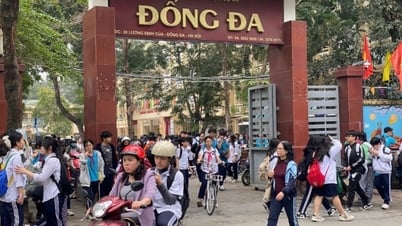

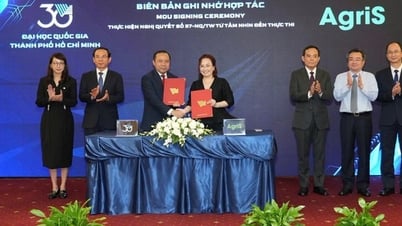







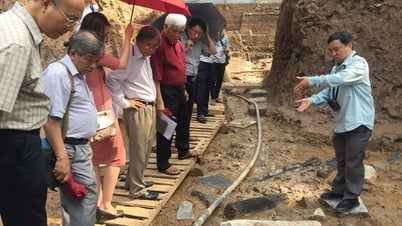







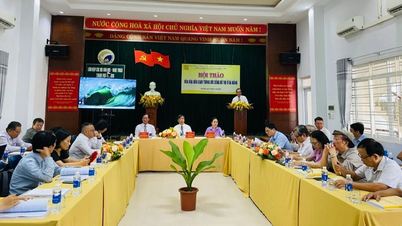

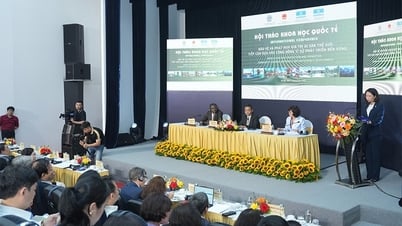



















































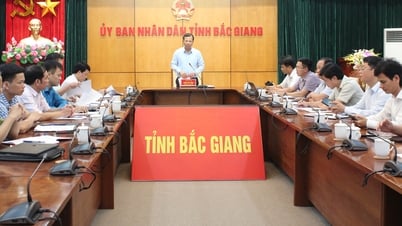

Comment (0)